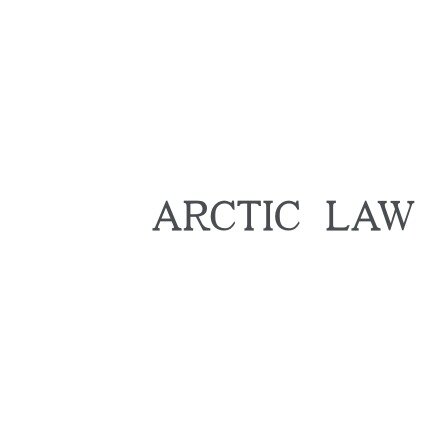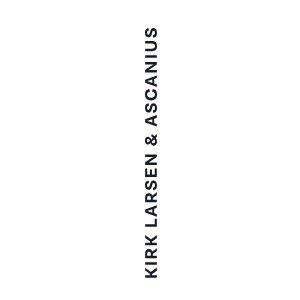Best Water Law Lawyers in Greenland
Share your needs with us, get contacted by law firms.
Free. Takes 2 min.
Or refine your search by selecting a city:
List of the best lawyers in Greenland
About Water Law in Greenland
Water Law in Greenland encompasses the set of legal frameworks, regulations, and customary practices governing the use, management, and protection of water resources within the country. Greenland, as the world’s largest island, is rich in freshwater resources, primarily in the form of glaciers, rivers, lakes, and underground aquifers. Water Law in Greenland aims to balance responsible usage, environmental protection, indigenous rights, and economic activities such as fisheries, mining, and energy generation. The law is influenced by a combination of Greenlandic self-rule policies, Danish legislation, and international treaties.
Why You May Need a Lawyer
There are various situations where individuals, communities, and businesses may require legal assistance relating to Water Law in Greenland. These include:
- Disputes over water access or usage rights
- Permitting and compliance for commercial water use, such as mining, hydropower, or fish farming
- Environmental impact assessments for projects affecting water bodies
- Protection of indigenous water rights
- Enforcement of pollution controls or litigation involving water contamination
- Conflicts involving shared water resources with neighboring countries or between local communities
- Legal advice for tourism operators or developers using water resources
- Seeking compensation for damage caused by water-related activities
A knowledgeable lawyer can help navigate complex regulations, interpret local statutes, represent interests in disputes, and ensure compliance with all applicable laws.
Local Laws Overview
The foundational legal structure regarding water in Greenland stems from a mix of Home Rule legislation and applicable Danish and international frameworks. Some of the key areas covered by local laws include:
- Water Resources Management: Water is considered a public good in Greenland, governed by regulatory bodies that grant usage permits and monitor quality. Municipalities play a central role in local water administration.
- Licensing and Permits: Commercial, industrial, and significant private uses of water, such as for energy, fishing, or irrigation, generally require permits from governmental authorities.
- Environmental Protection: Laws require environmental assessments for any project that may affect water bodies. Regulations prevent pollution and promote the sustainable use of water resources to preserve local ecosystems.
- Indigenous Rights: Greenlandic Inuit customary rights to water, including traditional uses, are protected and must be considered alongside commercial interests.
- Cross-border and International Regulations: Greenland administers some water bodies with international relevance and is subject to treaties for transboundary environmental protection.
- Drinking Water Standards: Laws establish quality and safety standards for potable water to protect public health.
Frequently Asked Questions
What activities require a water use permit in Greenland?
Permits are required for commercial and large-scale private use, such as for hydropower, mining, fish farming, and significant alterations to watercourses. Collection of water for personal, household use typically does not require a permit.
How are indigenous and customary water rights recognized?
Greenlandic law recognizes the importance of traditional Inuit rights, including access for fishing, hunting, and other uses deeply connected to culture and subsistence. These rights are considered in permit processes and environmental assessments.
What happens if a project pollutes a water source?
Entities found responsible for polluting water sources may face fines, remediation orders, suspension of permits, or legal liability to affected parties. Authorities have the power to investigate and enforce penalties.
Are there restrictions on foreign companies using Greenland’s water resources?
Yes, foreign entities must follow the same permit application processes and are subject to governmental scrutiny to ensure protection of the environment and respect for local communities’ interests.
Can I appeal a water use decision made by authorities?
Individuals and organizations have the right to appeal administrative decisions related to water usage, permits, or environmental assessments. Appeals are typically submitted to the relevant governmental department for reconsideration.
How are water disputes between communities or companies resolved?
Disputes can be resolved through negotiation, mediation, or litigation. The law prioritizes negotiated solutions, but courts or administrative tribunals are available if agreement cannot be reached.
What quality standards exist for drinking water?
Greenland follows strict standards for drinking water quality, with regular testing required by local authorities to ensure safety for human consumption.
Does climate change affect Water Law in Greenland?
Yes, climate change impacts water availability and quality, leading to evolving regulations to address glacial melt, changing precipitation patterns, and increased risks of contamination.
Is rain or glacial water free to use?
Rainwater collected for private, non-commercial use generally does not require a permit. However, commercial use or significant alteration of glacial water sources typically requires governmental approval.
Who enforces Water Law in Greenland?
Enforcement is primarily carried out by municipal authorities, the Naalakkersuisut (Greenlandic Government), and dedicated environmental agencies. They monitor compliance, issue permits, and respond to violations.
Additional Resources
If you need more information or support regarding Water Law in Greenland, these resources may be helpful:
- Naalakkersuisut (Government of Greenland) - Department of Nature and Environment
- Local municipal environmental departments
- Danish Environmental Protection Agency (for issues with international elements)
- Qeqertarsuaq Institute for Water Research (for data and studies on Greenlandic water)
- Non-governmental organizations focused on environmental or indigenous rights in Greenland
- Public legal help centers and ombudsman offices in Greenland
Next Steps
If you believe you may need legal assistance with a Water Law matter in Greenland, consider the following steps:
- Collect and organize any documentation or correspondence relevant to your issue (permits, contracts, notices, etc.)
- Identify the specific issue or question you need help with (such as permit applications, disputes, environmental damage, etc.)
- Contact your local municipal office for clarification on local procedures
- Seek a consultation with a lawyer specializing in Water Law or environmental law in Greenland
- If urgent, contact the relevant governmental enforcement agency for immediate guidance
A qualified lawyer can help you understand your rights, guide you through the legal process, and represent your interests to ensure the sustainable and fair use of Greenland’s vital water resources.
Lawzana helps you find the best lawyers and law firms in Greenland through a curated and pre-screened list of qualified legal professionals. Our platform offers rankings and detailed profiles of attorneys and law firms, allowing you to compare based on practice areas, including Water Law, experience, and client feedback.
Each profile includes a description of the firm's areas of practice, client reviews, team members and partners, year of establishment, spoken languages, office locations, contact information, social media presence, and any published articles or resources. Most firms on our platform speak English and are experienced in both local and international legal matters.
Get a quote from top-rated law firms in Greenland — quickly, securely, and without unnecessary hassle.
Disclaimer:
The information provided on this page is for general informational purposes only and does not constitute legal advice. While we strive to ensure the accuracy and relevance of the content, legal information may change over time, and interpretations of the law can vary. You should always consult with a qualified legal professional for advice specific to your situation.
We disclaim all liability for actions taken or not taken based on the content of this page. If you believe any information is incorrect or outdated, please contact us, and we will review and update it where appropriate.
Browse water law law firms by city in Greenland
Refine your search by selecting a city.











